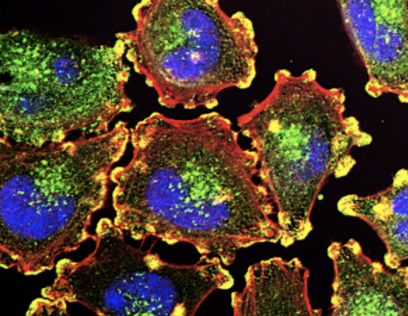The Balance of Progress: Navigating Technology and Humanity
Written on
Chapter 1: The Paradox of Progress
In the past century, humanity has achieved remarkable milestones in science and technology. From the transition from pigeons delivering messages to instant communication through mobile phones, the pace of advancement is extraordinary.
We now possess the capability to modify a child's genes to mitigate diseases, implant chips to enhance cognitive functions, and even utilize driverless cars that liberate us from the need to concentrate on driving. With the advent of 5G technology, we enjoy faster data speeds, increased reliability, and expansive network capacities.
So, what are the concerns? Why should we tread cautiously in this landscape of innovation?
I firmly believe that with every gain, there is a loss. More work hours can mean less time with loved ones, and indulging in unhealthy food compromises our health. Essentially, every positive development carries its drawbacks.
So, what are the potential pitfalls of technology? Are we facing more challenges than benefits? Let’s delve into some of these advanced domains to gauge the implications for future generations.
Genetic Engineering: A Double-Edged Sword
In the original "Jurassic Park," industrialist Hammond and his team created dinosaurs by manipulating DNA from preserved mosquitoes. They even used frog DNA to fill in gaps, believing they had devised a foolproof plan by ensuring all dinosaurs were female to prevent breeding.
However, they were taken aback when they discovered dinosaur eggs. The unexpected outcome was attributed to the frog DNA, as some species can change sex in a single-sex environment, prompting similar behavior in dinosaurs. By the time this was realized, it was far too late, leading to chaos.

In reality, we possess the ability to select embryos during the IVF process based on various traits. From crops to endangered species, the potential for modification is vast. But, as illustrated in "Jurassic Park," unforeseen consequences can lead to widespread disaster.
Jamie Metzl refers to this phenomenon as "Hacking Darwin" in his recent book, explaining how we are moving away from natural selection by altering genes. In an interview, he discusses the ramifications of these scientific advancements and emphasizes the need for global norms to prevent misuse. But can we guarantee safety?
In 2016, James Clapper, then U.S. director of national intelligence, identified gene editing as a potential threat akin to “weapons of mass destruction.” The greatest challenges in gene editing might not arise from malice or error, but rather from the unintended effects of successful interventions. Perhaps we are already experiencing one such consequence, unbeknownst to us.
Environmental Impact of Technological Advancement
Residing in Silicon Valley, California, I once lost my house keys and called a locksmith. This man, in his 50s, reminisced about how the area was once a lush forest.

As I surveyed my surroundings, I was struck by the stark contrast of towering tech buildings and sprawling campuses, which now overshadow the trees that once flourished here and the wildlife that had to relocate. A recent report indicates that approximately 1 million species of plants and animals are now facing extinction, a figure unprecedented in human history.
Every second, an acre and a half of forest is lost, and between 2001 and 2015, over 300 million hectares of tree cover vanished. The oceans are heating up at an accelerated rate, and carbon dioxide levels continue to rise.
These statistics underscore the dire consequences we may face. If we do not exercise caution, we could be paving the way for an uninhabitable planet, a cost future generations may bear.
Chapter 2: The Human Connection in a Digital Age
Imagine waiting at a traffic light and instinctively checking your phone for notifications. Technology has conditioned us to become increasingly impatient.
When we send a message via WhatsApp and see the blue ticks indicating that it has been read, the anticipation for a response can create anxiety. The virtue of patience is rapidly diminishing.
Research indicates that excessive use of social media platforms, such as Facebook and Twitter, may correlate with symptoms of depression. The quest for validation through likes and shares has led to increased anxiety levels.
While technology can foster connections, it often detracts from genuine interaction with loved ones. We text instead of calling, and we prefer calls over face-to-face visits. Children, once accustomed to outdoor play, now find themselves confined to screens.
In the U.S., there are programs aimed at teaching children social skills, something parents now invest in that was once learned naturally.
It has become painfully clear that our technological advancements may have outpaced our humanity, as noted by Albert Einstein.
While technology undoubtedly offers benefits, we must recognize its limitations. Improper or excessive use can lead to repercussions that affect mental health, biodiversity, and even global stability.
Let us advocate for awareness, education, and responsible usage of technology.
The first video titled "Tread Lightly: Minimizing Your Carbon Footprint" discusses practical steps individuals can take to lessen their impact on the environment.
The second video, "Science & Technology Q&A for Kids (and others) [Part 145]," answers various questions about science and technology, making complex topics accessible for all ages.